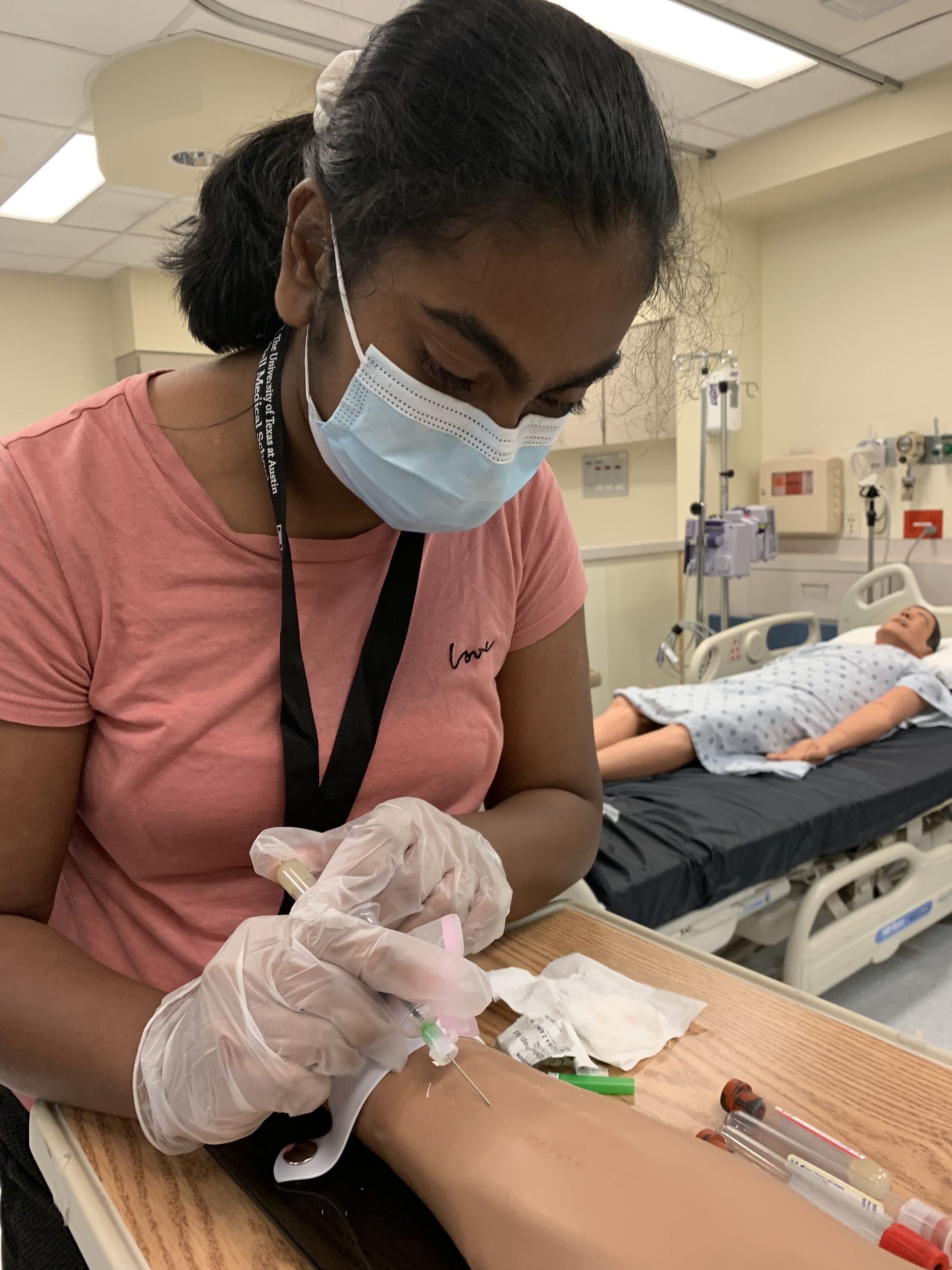Dell Medical School’s pathway programs offer middle and high school students early exposure to medicine, and the experience is opening doors for thousands of future health professionals across Central Texas.



In 2022, Danae Levin helped deliver a baby at Dell Med’s Health Sciences Summer Camp.
It was a simulated delivery using a lab manikin, sure — but the experience was still formative for Levin, who is now entering her freshman year at The University of Texas at Austin, majoring in women’s and gender studies on a prephysician assistant track.
“At first I didn’t know what I wanted to do, but after that simulation and hearing from OB-GYNs about women’s health and the stories of patients they’ve cared for, I was inspired to go into the field,” Levin says. “One of the speakers talked about gaining a more holistic approach to supporting women’s lives by doing women’s and gender studies in undergrad, which is part of why I chose to do the same.”
The summer camps, along with programs including the Health Sciences Yearlong Academy and summer chemistry tutoring seminar, help students like Levin explore health professions across all specialties, and to do their own research and outreach about health topics through both independent and group projects.
To date, Dell Med’s pathways programs have served more than 4,500 students in Central Texas, including more than 1,800 in the Health Sciences Summer Camps. Since then, program alumni have gone on to professions or education spanning health and life sciences, including medical school, dental school, nursing school, teaching, public health and research at the National Institutes of Health and Centers for Disease Control and Prevention.
“Some of these students have never had real exposure to medicine, apart from visiting their pediatrician or watching medical dramas on TV,” says Liliana Martinez, assistant director of pathway programs at Dell Med. “By showing them how much opportunity there is to be in the health care field, and pointing the way forward through mentorship, we’re trying to give them an early sense for how they can contribute their talents and interests.”
Supported From the First Step
Bhavya Sinha, who went through both summer camp and the yearlong academy alongside Levin, is now entering UT as a freshman majoring in premed biology, with her sights set on medical school in four years.
“None of my family have become doctors in the U.S. before, and medicine can feel daunting to go into — but I made lot of friends at the camp, some of whom are also the first in their families to go into medicine here, and some are also going to UT with me,” Sinha says. “I’m really grateful to already have those connections early on.”
Sinha worked on a group research project throughout the yearlong academy, studying polycystic ovarian syndrome and the effects of stigma on the public’s awareness of the condition. The work taught her not only about the condition itself, but how to conduct and present research — a skill she’ll take with her into her next chapter.
“At camp and the academy, I got experience with everything, from dissecting a cow’s eye to studying PCOS to the neurological impact of social media on our communities,” Sinha says. “I don’t know yet what specialty I want to go into, but a lot of the people I’ve met along the journey have shown me what a worthwhile profession it is. And the more I learn about medicine, the more I get more curious about it and all the discoveries we still have yet to make.”
Exploring All Health Professions
As part of her yearlong academy project, Levin and her teammates worked to impact the social determinants of health for Austin women with low incomes. Levin’s team aggregated a list of resources for needs like food and childcare items, then translated the document into Spanish and Arabic and shared it with local health care clinics.
And Levin, who now looks to give back as a counselor for the Health Sciences Summer Camps, took away a key point from her experience at Dell Med: You don’t have to be a physician to be a leader in health care.
“To go into medicine, I was thinking doctor, but after hearing from all sorts of different doctors across specialties, I realized that if I wanted to have the work-life balance and family I hope for, being a physician might not actually be for me,” Levin says. “But when a physician assistant came and talked to us, I realized that that was how I could best pursue my passions. I don’t think I would have known that was an option otherwise.”